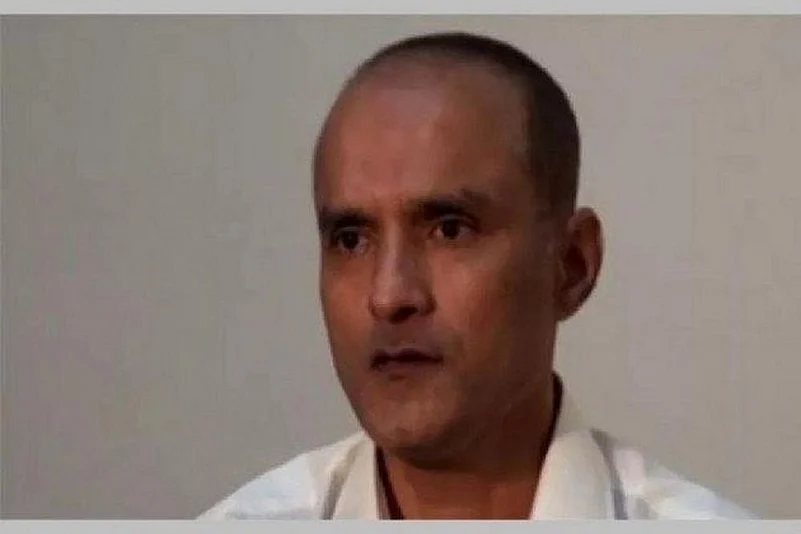Pakistan on Tuesday told the International Court of Justice (ICJ) that India did not provide answers to the key questions it raised about Kulbhushan Jadhav, including "a decision regarding Jadhav's nationality".
Pakistan presented its arguments on Tuesday at the ICJ on Jadhav, who has been sentenced to death by a Pakistani military court for alleged espionage. The ICJ began its four-day hearing in the Jadhav case on Monday amidst heightened tensions between India and Pakistan in the wake of one of the worst terror attacks in Jammu and Kashmir by Pakistan-based Jaish-e-Mohammad terror group that killed at least 40 CRPF soldiers.
Advertisement
On the first day of hearing, India urged the ICJ to annul Jadhav's death sentence and order his immediate release, saying the verdict by a Pakistani military court was based on a "farcical case" and hopelessly fails to satisfy even the minimum standards of due process.
Pakistan's Foreign Office spokesperson Mohammad Faisal in a video message posted on social media said the Indian arguments had nothing new in them.
"There was nothing new in India’s argument on the issues which we raised, like our question about how he (Jadhav) got the passport with name of Hussain Mubarak Patel and how he travelled 17 times to India using that passport," he said.
Advertisement
Faisal said India also did not show any document like pension book or bank statement to prove that Jadhav had retired from the Indian Navy.
He said India demanded "acquittal, release and return" of Jadhav but "it had no answer to the question that how justice will be done with thousands of people who were killed due to his sabotage and terrorist activities."
Presenting Islamabad's arguments before the top UN court, English Queen's Counsel Khawar Qureshi said: "On Monday India did not respond to several key questions."
He said that "a decision regarding Jadhav's nationality has not yet been made". "India did not state whether he is Kulbushan Jadhav or Hussain Mubarak Patel."
"How can India demand consular access when it did not confirm Jadhav's nationality?" he questioned. "India should tell why the consular access agreement does not apply to Jadhav."
"On one side, India has moved the world court and on the other side it has refused to answer Pakistan's questions," Qureshi said. "India is sitting on a weak wall of lies just like Humpty Dumpty," he added, Geo News reported.
The ICJ hearing is from February 18 to 21, and it might deliver a decision in the case by the summer of 2019.
Jadhav, a retired Indian Navy officer, was sentenced to death by a Pakistani military court on charges of "espionage and terrorism" after a closed trial in April 2017. India moved the ICJ in May that year citing "egregious violation" of the provisions of the Vienna Convention by Pakistan by repeatedly denying New Delhi consular access to the 48-year-old Indian national.
Advertisement
He alleged that the Indian Navy officer was a "spy" and not a businessman.
Qureshi also alleged that Jadhav was an "instrument of India's official policy of terror".
Jadhav "carried out bombings, targeted operations, kidnapping and unlawful activities to create anarchy in Pakistan" and targeted the Pakistan-China Economic Corridor, he alleged.
In his arguments, Attorney General of Pakistan Anwar Mansoor Khan cited a speech of Prime Minister Narendra Modi to say that he has been on record to have suggested using water as a weapon against Pakistan.
He said Pakistan was a "major victim of terrorism" and has suffered more than 74,000 casualties caused "mainly by the interference by our neighbour, India".
Advertisement
"Pakistan wishes peace and peaceful neighbourhood but that does not deter us to protect our motherland, by ensuring that such guilty face the law," Khan said.
He also underlined that granting access to Jadhav's family on humanitarian grounds was an unparalleled gesture as no person involved in espionage and terrorism has been granted this facility in the past.
Khan also raked up India's role in the creation of Bangladesh by dividing Pakistan through military action and "funding and training" anti-Pakistan militia.
(With Agency inputs)



















